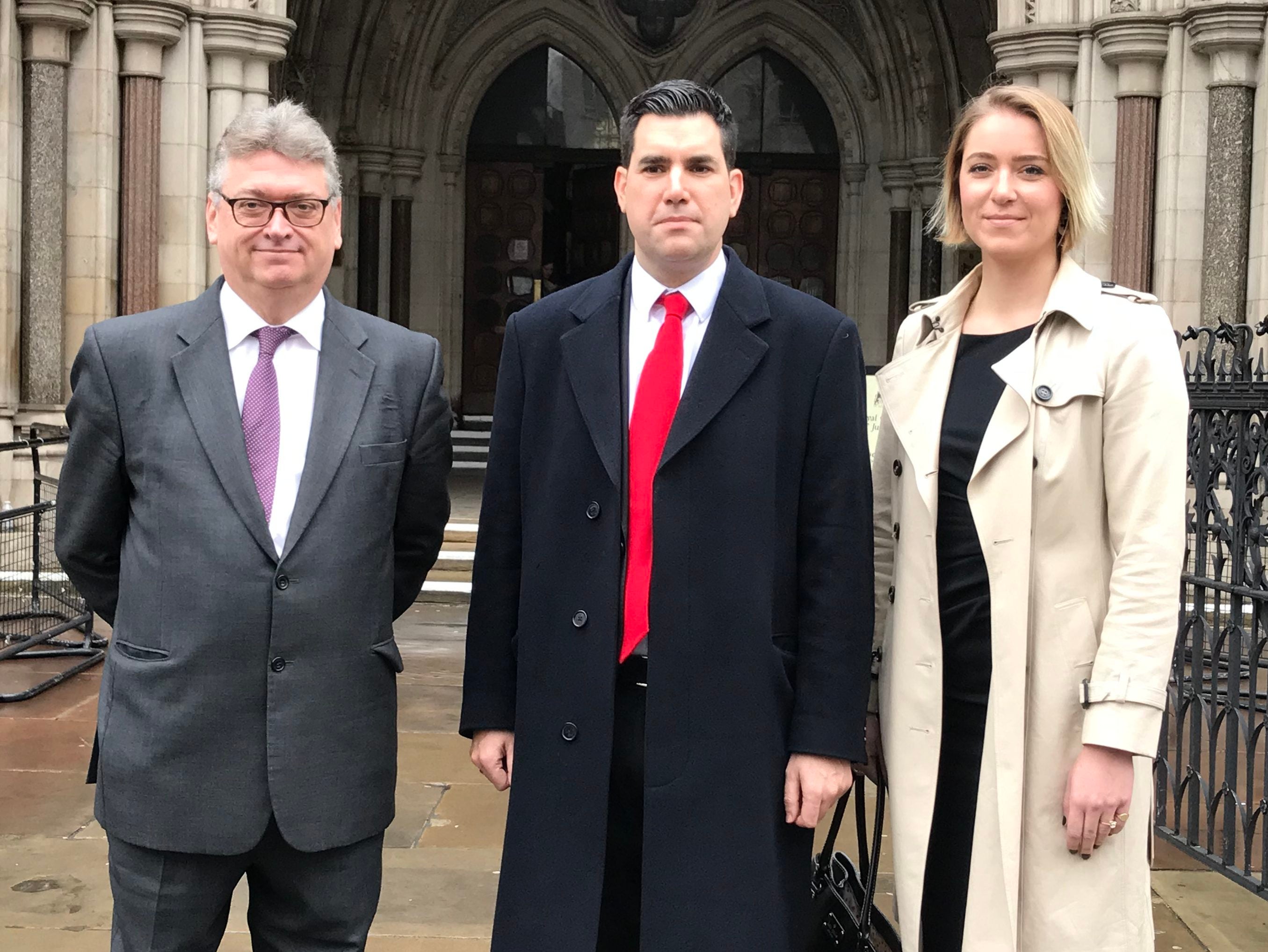
Shadow Justice Secretary Richard Burgon has won a High Court libel battle against the Sun over an article claiming he had joined a band that “delights in Nazi symbols”.
The MP for Leeds East was awarded £30,000 in damages by Mr Justice Dingemans today, following a three-day trial. The judge also granted an injunction to stop further publication of the claims.
Burgon (pictured centre) said he was “delighted” by the outcome and that he would use the damages to fund a paid justice internship for a young person from Leeds.
The Sun has said it is “deeply disappointed” with the ruling and plans to appeal.
The Sun story by political editor Tom Newton Dunn, published in April 2017, was headlined “Reich and Roll: Labour’s justice boss ridiculed after he joins a heavy metal band that delights in Nazi symbols.”
But Burgon said an image tweeted by the band Dream Troll, which appeared to use the “S” from the logo of the notorious Nazi paramilitary organisation the SS, was a “spoof” of Black Sabbath’s 1975 album We Sold Our Soul for Rock ‘n’ Roll, an interpretation accepted by Mr Justice Dingemans.
The judge said the Sun had no defence of truth because the evidence does not show the band took great pleasure in using Nazi symbols.
He added that the two “S”s in the Dream Troll image were not “Nazi symbols” because the letters are not positioned together and are angled differently to the SS logo.
“The colour scheme of red, white and black and the Gothic writing and umlaut for the words ‘Dream Troll’ do not change my finding on this because the colour scheme and form of writing cannot convert a symbol into something it is not.”
Mr Justice Dingemans also found the Sun had no defence in the public interest, saying Newton Dunn should have included a reference to the Black Sabbath album in the online article.
The judge disagreed with Newton Dunn’s claim that a response from Burgon’s political adviser giving him the context of the album was off the record.
“In my judgment Mr Newton Dunn has convinced himself that the statement was off the record in an attempt to rationalise what was otherwise an inexplicable failure to include the reference to Black Sabbath in the online article,” the judge said.
The Sun’s defence of honest opinion was also denied.
Mr Justice Dingemans said the online article was defamatory because it “would have substantially affected in an adverse manner the attitude of other people to Mr Burgon”.
“The article itself makes it clear that Mr Burgon faced scorn. In my judgment it is defamatory to say that a person joined a band which as he knew took great pleasure in using Nazi symbols.
“This is because the Nazis were, as was common ground between the parties, uniquely evil and no right minded person would join a band which he knew took great pleasure in using Nazi symbols.”
He added that he believed the article, which was read by around 7,000 people in England and Wales, has caused serious harm to Burgon’s reputation.
A Sun spokesperson said: “We fundamentally disagree with the judge’s conclusions, and furthermore, fear they may act as a brake on the ability of the free press to hold those in power to account and to scrutinise the judgment of those who aspire to the highest offices in the land.
“We do not feel that this ruling pays adequate attention to the need to hold politicians to a higher standard than private citizens, we do not agree with the judge’s conclusions on the substance of the image at the heart of the case, and we do not feel that the ruling takes into sufficient account the nature of on- and off-the-record statements in the reality of political journalism.
“In light of the ongoing anti-Semitism controversies which were engulfing the Labour Party at the time of publication, we firmly believe it was in the public interest to assess the Shadow Justice Secretary’s wisdom in being associated with the image.”
Mr Justice Dingemans dismissed Burgon’s claim of malicious falsehood, finding that Newton Dunn was “acting honestly” when he wrote the story.
The judge did not address a separate claim under the Data Protection Act, saying it was unnecessary where the libel claim had succeeded.
Email pged@pressgazette.co.uk to point out mistakes, provide story tips or send in a letter for publication on our "Letters Page" blog
